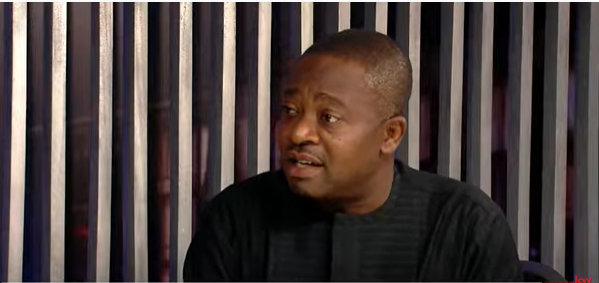Chief Executive Officer of the Association of Ghana Industries, Seth Twum Akwaboah, says government’s revenue mobilization measures as outlined in the 2023 Budget Statement and Economic Policy are injurious to the productive sector.
According to him, the introduction of the 2.5% increment in Value Added Tax (VAT) resulting in the 21% VAT rate will place an undue burden on the productive sector while boosting importation.
He explained that while he understands the government’s need to stabilize the macroeconomic environment to raise revenue to rescue the country’s ailing economy, the measures would inadvertently cripple the productive sector proving the government’s plan counterproductive.
“In raising revenue you need to really look at your revenue handles, the tax handles that will bring you the revenue, but at the same time you’re looking at employment creation. You’re also looking at the long term. And you’re also asking yourself, why are we here? And part of the reason why we are here is because we are not producing enough to feed our system.
“We are importing so much, and therefore if you want to generate revenue and you sacrifice the productive sector to raise the revenue, in the long term it’s not going to help you. So this is the balancing act we have to do and we have to do it properly,” he said on JoyNews’ PM Express Business Edition, Thursday.
Mr. Twum Akwaboah explained that whereas producers will be expected to pay the government’s standard VAT rate, importers would merely pay the flat rate which has remained unchanged even after the VAT increment.
“The fact that you want to raise revenue does not mean you should lose sight of the productive sector you want to support. So typically you’ve increased tax rates, the VAT rate by 2.5%, but the way it is done is a bit more burden on the part of the productive sector which you’re trying to support. So that runs counter to what you want to do.
“If you look at it for example the fact that most of the well-organized companies, if you take the manufacturing sector they are all; well-organised so they pay the VAT at standard rate and all that goes with it. But the importers most of them pay flat rate. The flat rate hasn’t changed, it has remained the same and yet you’ve increased the VAT.
“So it means that those in the organized sector who are paying the VAT there’s more burden on them whiles you’re actually leaving the importers out. So you’re actually supporting importation rather than the productive sector. So you have to be very careful if you’re introducing new tax handles,” he said.
Latest Stories
-
GPL 2024/25: Nations FC breeze past Basake Holy Stars
6 minutes -
World Bank Regional Vice President for Western and Central Africa to visit Ghana
30 minutes -
Nigeria’s Nathaniel Bassey to minister at Donald Trump’s inaugural prayer breakfast
1 hour -
Kpando NDC Youth laud Mahama on Prosper Bani’s appointment to lead interim National Security Coordinating team
2 hours -
Penyi Paramount Chief, Torgbiga Dadzi V congratulates John Mahama on his victory
2 hours -
‘The battle has ended, we are ready to work’ – Tema Central MP-elect
2 hours -
‘We always believed the numbers were in our favour’ – Okaikwei South MP-elect
2 hours -
I’ll fully rededicate myself to the task ahead – Bagbin assures Mahama, Ghanaians
3 hours -
Ghana’s 8th Parliament dissolves today to make way for 9th Parliament
3 hours -
Wenchi SDA church honours 20 girls for keeping virginity
3 hours -
Ho Technical University promotes two female Senior Lecturers to Associate Professors
3 hours -
New dawn for Ghana: Minority Caucus promises hope, restoration
3 hours -
NPP will surely bounce back – Chris Arthur tells supporters
3 hours -
Lady Vice-Chancellors call on Vice President-elect
3 hours -
Tanzania’s fuel revolution slowed down by lack of filling stations
5 hours

